4 Worst Communication Mistakes
Effective communication costs very little and the results can transform both you and your business. Communication and interpersonal skills are at the top of the list of what matters most today in leadership and at home. Investing time and money in learning better communication skills can produce breakthrough results!
In today’s post, I am going to share the worst communication mistakes. By learning to avoid them, you will save time and money, your influence will increase and you will have better personal and business relationships too.
There are many factors that can sabotage effective communication. Let’s examine the 4 main culprits:
Communication Mistake 1: Unclear messages
This is probably the most common and costly mistake. Two things support clear communications:
1. The way you think, which affects the clarity of your ideas.
2. The way you talk, which affects the clarity of your expression.
You need to pay attention to your thoughts before opening your mouth. Start with organizing your thoughts around the result you want. What do you want your message to accomplish? For example, you might want to influence your board in getting funding for a project; or talk to a subordinate about closing a client’s account; or talk to your sweetheart about making time for a date night. Whatever it is, it must be crystal clear to you first. You can then organize your thoughts in a logical sequence that will take you to that destination.
When you talk, don’t "beat around the bush." Share your complete idea using simple and direct words. Make sure your words connect with the person or group you are talking to.
Reduce the number of words you use to improve clarity of meaning. Don’t leave a thought half finished with an ending like: “you know. . .” or “you can imagine. . .” Slowing down will also permit you to use more expression and emphasis, further clarifying your message.
Communication Mistake 2: Not listening
Not listening competes with unclear messages for first place on the list of costly mistakes. Many leaders listen only to their own voices. The result is a badly informed leader, ill prepared to deal with issues that later can become huge problems.
Many couples only listen to refute or defend. That will only result in conflict and misunderstandings.
Don’t interrupt others, thinking you will “save” time. You really don’t “know” what the other person is going to say. You will avoid many misunderstandings if you take the time to listen.
Listening is more than hearing the words the other person is saying. It requires a desire to understand another human being. Develop an attitude of respect and acceptance. Be willing to open your mind to try and see things from the other person’s eyes.
Listening requires a high level of concentration and energy. You need to set aside your own thoughts and agendas. True listening requires suspending judgment, evaluation, and approval. You must attempt to understand the frame of reference of the other person, their emotions, and attitudes. Listening to understand is, indeed, a difficult but rewarding task!
Communication mistake 3: Message overload
Listening to a rambling, unorganized person is tedious and discouraging. People will get tired and disconnect. State your point of view as briefly and succinctly as possible. Don’t try to convince others of the correctness of your views by smothering them with words.
Don’t let your conversation become repetitious, leading nowhere. Instead, choose your words with the intent of making your message as clear as possible. Avoid jargon and unnecessary information. Ask more open questions, invite and welcome the ideas of others. By being brief, you will leave time and space for listening to the voices of others.
Communication mistake 4: Not checking assumptions
Throughout the course of life, every person has built up some assumptions about self, others, and the world in general. We tend to filter what another says through what we think the other is like and what we think he or she is saying. We bring our preconceptions to the moment of dialogue. When we filter the dialogue through such images, biases, and assumptions, distortion and separation are the result.
It is better to bring assumptions into the open to be examined and discussed. Ask more questions. Share your assumptions behind your conclusions. Check them out to make sure everybody is really agreeing or disagreeing to the same thing.
Remember. . .
Effective communication is the glue that holds organizations and families together. As John Baldoni says: “It is the means by which we exchange ideas, learn from each others, and perhaps most importantly, connect to each other.”
Through effective communication you can inform, persuade, influence, and inspire. It requires effort, concentration, and practice. Yet the rewards are enormous. It is up to you to lead by example, not only showing the way of effective communication, but also teaching others to do the same.
What to do if you tend to make any of these communication mistakes
It’s worth investing in communication coaching to learn more effective ways to communicate. Reach out to Dr. Ada and find out how she can help you transform your communication and your relationships.

